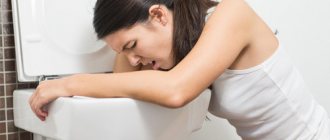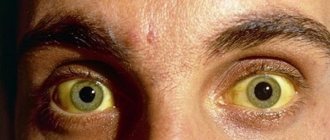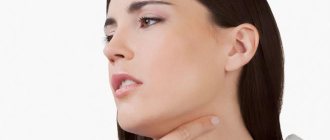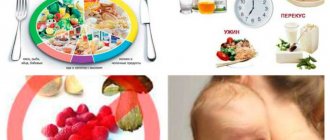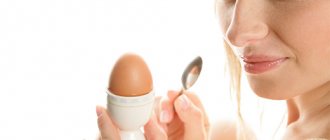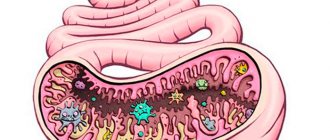Causes of constipation after diarrhea
The first factor is psychosomatic. Most often it causes indigestion in women. The appearance of constipation, and subsequently diarrhea, can be influenced by depression and chronic stress. The same applies to fatigue due to workload and frequent business trips.
Other causes of diarrhea after constipation (constipation) deserve attention:
- poor nutrition, for example, a reduced amount of dietary fiber (fiber) in the daily menu;
- food or alcohol poisoning;
- infectious pathologies of the large intestine - dysentery, amoebiasis;
- an increase in the size of benign or malignant tumors on the walls of the stomach or intestines;
- incorrect use, especially exceeding the dosage of medications;
- hemorrhoids at any stage.
A factor provoking the alternation of diarrhea and constipation may be nonspecific inflammatory changes in the large intestine. Most often we are talking about Crohn's disease or ulcerative colitis. Also, the appearance of constipation after diarrhea may be associated with chronic damage to the colon and the proliferation of pathogenic microorganisms.
Important! In older people, changes in intestinal motility appear much faster and more acutely than in younger people.
Therefore, even a cup of weak coffee, eating ripe fruit or other unusual food can lead to diarrhea after constipation in the elderly.
Tumor formation in the rectum
The rectum is the final section of the digestive tract, through which feces are excreted. The main factors provoking the development of cancer pathologies in the rectum are generally considered to include:
- Polypous formations on the intestinal walls.
- Proctitis.
- History of chronic colitis.
- Hereditary predisposition.
Some experts believe that the main factor contributing to the development of cancer is poor nutrition. If the patient's daily diet is rich in fried foods and the amount of fruits and vegetables is limited, this can cause persistent constipation. Also a predisposing factor is inactivity and being overweight.
Symptoms of constipation after diarrhea
The clinical picture of diarrhea and constipation is conventionally divided into two stages: initial and later. The first is characterized by mild symptoms that cause mild anxiety:
- feeling of incomplete bowel movement after visiting the toilet;
- periodic increased gas formation, attacks of flatulence, bloating, which go away on their own;
- alternation of normal bowel movements with false urges;
- periodic attacks of nausea that develop after eating food;
- diarrhea after constipation takes on a watery character, with rare mucus impurities appearing in it;
- no pain.
At later stages, the clinical picture of diarrhea, then constipation, is accompanied by cramping pain in the abdominal area after eating food. Intestinal colic and pronounced headaches occur. The patient may complain of:
- insomnia;
- increase in temperature indicators;
- vomiting or retching, regardless of food consumption or hunger;
- the appearance of blood or its impurities in the stool.
Most often, constipation and diarrhea occur due to alcohol or food intoxication, that is, severe poisoning, as well as infectious pathologies.
Enterocolitis as a disease
Increased intestinal motility provokes diarrhea.
Symptoms characteristic of this disease include irregular bowel movements and alternating diarrhea with constipation.
Increased intestinal motility provokes diarrhea. Accordingly, water absorption does not occur through the pituitary membrane.
Due to the liquefaction and softening of stool, diarrhea also occurs. The frequency of bowel movements depends on how severe the bowel damage is.
In cases where inflammatory processes have spread to the area of the small intestine, abundant and thin bowel movements will be observed about 4 times a day.
This disease is not accompanied by pain. After eating, there is a urge to urinate. The number of acts of defecation can reach 10 times per day or even more. There may be pituitary impurities in the stool.
Constipation may occur after prolonged diarrhea. Accordingly, acts of defecation are reduced to 2 times a week.
First aid for constipation after diarrhea
The first step is to prevent dehydration and normalize water balance. For diarrhea and constipation, not only water will help, but also special saline solutions, for example, Regidron. One sachet is consumed within 12 hours in small sips, diluted in a liter of water.
It is acceptable to drink non-carbonated mineral water and solutions with a small amount of glucose..
Liquids should be consumed in small sips, warm.
Next steps when alternating constipation with diarrhea:
- the use of sorbents (Enterosgel, activated carbon) - they help compact stool and remove pathogenic microorganisms from the intestines;
- consumption of plant fiber, which helps improve intestinal function;
- the use of enzyme preparations (Pancreatin, Mezim, Festal) - restores the functions of the pancreas impaired due to diarrhea or constipation.
If there are no problems with the tone of the rectal muscles and minor discomfort, natural fillers are used. These are flax seeds, agar-agar; You can use synthetic analogues, including methylcellulose. An adult cannot do without a full-fledged rehabilitation course for constipation and diarrhea at the same time.
Diagnosis of pathology
Poor nutrition provokes irritable bowel syndrome.
Irritable bowel syndrome is diagnosed to the patient after all other causes of this disorder have been excluded. This syndrome is caused by mental activity and is often found in adults exposed to stress, frequent travel, and also in very impressionable and sensitive people.
This disease can also be provoked by poor nutrition, overeating, alcohol abuse, and hormonal disorders. In this case, the inflamed mucous membrane will produce both constipation and loose stools.
You can find out the reason for the lack of normal stool by consulting a doctor; you cannot establish a diagnosis independently using observation and analysis.
Treatment of diarrhea and constipation
In this case, therapy must be approached very carefully. Restorative measures will differ depending on the clinical picture of the condition and the age of the patient.
Constipation after diarrhea
In this case, it is important to restore intestinal motor function. To do this, increase the amount of fiber in the diet. They eat cabbage, carrots, avocado, oatmeal, and boiled buckwheat.
Next, it is important to drink a significant amount of fluid to prevent dehydration after diarrhea.
In addition, you must:
- maintaining physical activity, taking slow walks in the fresh air is an important point in maintaining normal bowel function;
- stop using anti-diarrhea medications;
- Minimize the consumption of sugar, excessive amounts of which contribute to constipation.
Alternating between constipation and diarrhea can be helped by using probiotics. The most gentle are Bifidumbacterin and Lactobacterin.
Diarrhea after constipation
It is necessary to abandon medications that were previously used and used to treat constipation. Exceeding the dosage of these drugs can provoke impaired intestinal motility, resulting in either diarrhea or constipation.
It is important to adjust your diet and drinking regime . For successful treatment, reduce the amount of fiber consumed. If the alternation of unpleasant symptoms of diarrhea and constipation is associated with an infectious lesion, more serious measures are necessary:
- diet (table) No. 4, which excludes the consumption of foods that potentially provoke fermentation or rotting processes;
- the use of antispasmodics for severe pain or intestinal colic;
- use of non-invasive available means, for example, enemas and intestinal lavage.
If conservative methods of treating diarrhea do not help, surgery is prescribed. A preliminary examination by a gastroenterologist and the use of various diagnostic methods (gastroscopy, ultrasound, CT, radiography, laboratory tests) are indicated.
In pregnant women
At any stage of pregnancy, treatment if symptoms of constipation give way to diarrhea should be carried out extremely carefully. It is necessary to strictly adhere to the eating schedule. These should be cereals and cereal products. A woman needs to calm down, eliminate the influence of stress and other unpleasant situations.
Special attention is paid to gentle medications. Enzymes (Pancreatin, Mezim), mild antispasmodics (Drotaverine, Papazol) are recommended.
Their use for pregnant women is coordinated with a gastroenterologist and gynecologist. For prolonged constipation, experts prescribe mild microenemas, such as glycerin.
Treatment of stool disorders
Medicines help quickly, but not every case requires the use of medicines.
In case of functional disorders and during pregnancy, a conversation about the absence of danger to life and the role of stress will be useful.
Patients are recommended to keep a food diary for two weeks. This determines the connection between specific foods and stool disorders. If the main symptom is constipation, the diet includes fresh fruits and vegetables every day, at least 300-400 g. Vegetable oils are useful - sunflower, sesame, flaxseed. A glass of plain water in the morning on an empty stomach and at least six more glasses a day helps to improve bowel movements. During pregnancy and if the child has constipation, mothers are advised to eat 2-4 prunes, dried apricots or raisins. Walking after meals and a set of exercises have a positive effect on the regularity of bowel movements.
Diarrhea also requires nutritional adjustments. To replenish fluid losses, oral rehydration solutions (Regidron, Ionica, Bio Gaia ORS, Humana electrolyte) and dried fruit compote are prescribed. Strong black tea also strengthens, but is not recommended for children under three years of age. The diet includes rice, mashed potatoes with water, baked vegetables and fruits, and dry biscuits. Now water and tea breaks are cancelled. It has been proven that the sooner food enters the intestines during diarrhea, the faster recovery will occur.
Similar article - Ankle ligament suturing surgery
You should not experiment with medications for constipation and diarrhea. With prolonged uncontrolled use after a laxative, the opposite effect occurs. Wanting to quickly and inexpensively get rid of constipation, a person takes a laxative, often without reading the instructions and exceeding the dosage many times over. It is dangerous to do this, since when taking herbal stimulants for more than two weeks, 90% of patients develop laxative disease. An overdose of hay and buckthorn preparations depletes the intestinal receptors, the tone decreases and constipation appears. More serious symptoms are disturbances in heart rhythm and kidney function, and a drop in blood pressure.
To combat loose stools, along with fluid replacement, adults are prescribed antidiarrheal drugs. Loperamide (Imodium, Lopedium) slows down peristalsis and reduces the urge to defecate. Contraindicated for pregnant women and children under 12 years of age.
For constipation at any age, glycerin suppositories or microenemas are safe. The action is based on irritation of the rectal mucosa and stimulation of emptying.
If there is no effect, the doctor recommends an osmotic laxative with lactulose (Dufalak, Lactuvit, Medulak, Normaze). Used in children under one year of age and pregnant women under medical supervision.
Defecation disorders occur with functional bowel disorders. Slow or accelerated evacuation of the contents of the colon is observed against the background of inflammation of the mucous membranes of the digestive tract, disturbances of nervous regulation, and hormonal imbalance. Constipation after diarrhea occurs after prolonged use of laxatives, antibiotics, or when the composition of the intestinal microflora changes.
Consequences
If the problem of constipation in the evening and diarrhea in the morning is not treated, complications are likely to develop. They are connected with the fact that the body gradually loses the mineral elements necessary for full life.
The consequences of significant calcium loss may include:
- disruption of the heart muscle and vascular system;
- sudden changes in blood pressure;
- problematic thermoregulation of the body and a sudden rise in temperature;
- the formation of vegetative-vascular dystonia - this is especially typical for women.
An acute potassium deficiency may develop. Most often, it leads to the formation of calculi (stones) in the kidneys. This can also be fraught with unexpected spasms of the upper or lower extremities.
Alternating diarrhea and constipation can lead to magnesium deficiency. These are the most severe cases in which mental disorders, nervousness, and chronic fatigue syndrome develop.
Frequent intestinal disorders destabilize the functioning of the digestive system. This is fraught with gastritis, stomach ulcers, pancreatitis (inflammation of the pancreas). The most difficult case is the appearance of tumors of various origins.
Patient treatment methods
One of the components of the treatment process is adherence to food intake.
In order to normalize the excretion of feces from the patient’s body (both adults and children), it is necessary to make a correct diagnosis.
To do this, you need to conduct a detailed inspection. Thus, the doctor takes the necessary tests, prescribes an X-ray of the intestine, conducts a digital examination of the organ, determines the presence of blood in the stool, and conducts bacteriological and biochemical analysis.
The main goal of treatment in this situation is to eliminate the cause of the disease. To do this, first of all you need:
- maintain a meal schedule;
- protect yourself from stressful situations;
- take medications containing enzymes, as well as antibacterial, antidiarrheal, antispasmodic drugs.
For prolonged constipation, the doctor prescribes an enema procedure. Oncological disease is a call for surgical intervention.
Watch a video on how to get rid of constipation:
Noticed a mistake? Select it and press Ctrl+Enter to let us know.
He relaxed again!
Many people see no big deal in periodic episodes of diarrhea. Like, just think, it made me feel relaxed, I just washed the fruit badly - nothing, it will pass. This approach is dangerous. After all, in fact, our digestive system is designed very reliably and, if there are no problems there, it is quite difficult to disable it, so in 90% of cases the body can cope with food toxins and intestinal infections on its own. But if there is gastritis, atrophy of the gastric mucosa, low acidity of gastric juice and other problems, then resistance to infections will decrease.
Article on the topic
Reveal the hidden. Is early diagnosis of colon cancer possible? Therefore, if diarrhea has become a frequent guest, you definitely need to deal with it. By the way, as with constipation, which, for example, sometimes accompanies diverticular intestinal disease, in which “pockets” appear in this organ where pathogenic microbes settle. In general, any persistent bowel movements should be a cause for concern. Don't think that the absence of abdominal pain should be reassuring. After all, if, for example, a stomach ulcer usually gives obvious symptoms (unbearable pain and cramping, especially before eating), then even extensive ulcers in the intestines may practically not bother you.
